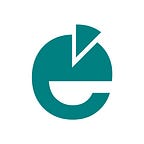Personal Finance Basics #2: Make your money work for You
This article is the second in a series about managing personal finance by The Egoole Blog.
If you saved ₦100,000 a year for the next 20 years and earned no interest, you would have ₦2,000,000.
If you invested the same ₦100,000 a year and earned a 10% return each year, you would have ₦6,973,000.
This difference is because your interest earns interest, and its interest earns even more interest, and so on (not adjusting for inflation). The result is an exponential growth.
To build wealth, you have to use the money you have to make even more money, and this mainly happens through investments. These include:
Stocks and Bonds
For the average Nigerian, stocks and bonds may be easier to invest in than owning real estate or starting a business, especially due to the rise of retail investing brought by Nigerian Fintech companies.
When you buy a stock, you are buying a portion of a publicly-traded company.
When you buy a bond, you are lending to the issuer, which may be a government, municipality, or corporation.
The price of a stock fundamentally depends on demand and supply and the value of the company (market capitalization), but ultimately, stock prices are affected by investor sentiments, attitudes, and expectations of the company. It is important to note that stocks are generally more volatile than bonds and the returns from a particular company stock can increase by as much as 40% in 6 months ($TSLA: Jul 2021 — Jan2022). However, over the last 100 years, the stock market has returned an average of 7% annually (inflation-adjusted), meaning if you are thinking long-term, stocks are the way to go.
Owning individual stocks is risky because any one company might go out of business due to various reasons, and in the short term, the company might take huge losses which inevitably affect its stock price. For most people, investing in index funds (a basket of different stocks) like the S&P500 is a more favorable approach as it protects the investor from short-term fluctuations.
Bonds on the other hand have a fixed rate of return, meaning you have an idea of how much interest you would make before buying them. Historically, stocks have outperformed bonds so you could be wondering why some investors might prefer bonds to stocks. This is mainly because bonds generally provide a predictable income stream (typically, bonds pay interest twice a year), and because they can be used to offset the more volatile stock holdings.
In the end, as described in The Millionaire Next Door, the point is to set aside a portion of your money (if possible) for generating even more money — usually in the form of investments. Due to the nature of compound interest, the changes are not easily noticed immediately you start investing, but they soon become very clear as time goes on and the compounding effects begin to show!
Ready to take control of your finances, check us out at egoole.co
Disclosure: All blog posts are provided purely for informational purposes and should not be construed as legal, tax, or financial advice. Please discuss your business and its specific needs with qualified counsel.
